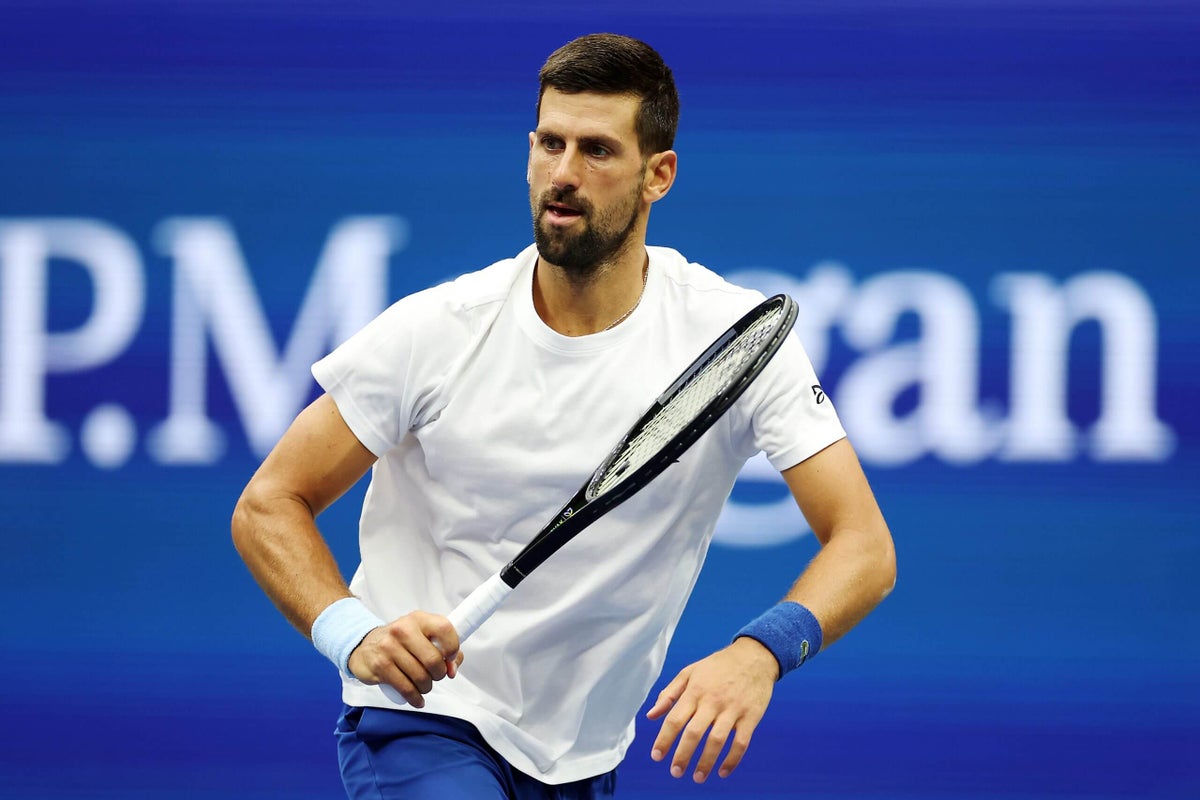NEW YORK — It’s one of the certainties of sport: Novak Djokovic arrives at a Grand Slam, sits behind a microphone and stuff happens.
On Friday at the Billie Jean King National Tennis Center, Djokovic called out top players for not putting up enough resistance to the ATP Tour when it decided to lengthen many of its top-level tournaments by making them 12-day events, nearly as long as the four Grand Slams.
The move has been met with plenty of complaints from players at nearly every level of the tour, even though the move has allowed the tours to increase their revenues and prize money.
Carlos Alcaraz said last year the leaders of tennis “probably are going to kill us in some way,” with the demands of the schedule.
Aryna Sabalenka, the world No. 1, skipped the Canadian Open this summer, citing exhaustion.
“The schedule is really intense and it’s crazy what they (are) trying to make us do because we’re humans, like it’s impossible to handle this intensity,” she said earlier this month. “Every week is a mandatory tournament and the schedule is crazy, honestly.”
But Djokovic wishes more players complained years ago, when the tours were planning the moves and pushing to demand more time from players who were already competing in one of the longest seasons in sports.
“I have noticed that a lot of top players have been quite opposing the new change of the almost two-week events, the Masters level,” Djokovic said, two days before he begins his latest quest to win what would be his 25th Grand Slam singles title. “I support the players. But (at) the end of the day, when the players needed to be active and when there was a time of negotiations and decision-making, players weren’t participating enough.”
Djokovic was participating then, serving on the ATP Tour Player Council. He resigned in 2020 to co-found the Professional Tennis Players Association because he grew convinced that players did not have enough input in the existing system and needed to exert pressure as part of independent unified association.
The move represented a significant split between Djokovic and the two other great players of his era, Rafael Nadal and Roger Federer, who were still active at the time Djokovic launched the PTPA and who both did not join it.
Earlier this year, the group filed an antitrust action against the tours aimed at pressuring the ruling bodies of the sport to negotiate a new structure that would produce more money for the players while requiring them to compete more often. The litigation and any subsequent settlement are expected to take years to reach their conclusion, likely long after Djokovic leaves the sport.
“This is an ongoing story of the players, particularly top players,” Djokovic said. “They express their feelings, but then when you really need to put in the time and the energy into conversations, meetings, which I know it’s very difficult. I have been there, trust me, many times. But it’s necessary because then, you know, you’re doing something not only for yourself but future generations, and you’re making the right moves, the right steps and contributing.”
Djokovic said he did not expect any movement from the tours themselves, regardless of how much players complain. The tours and tournaments have signed contracts with media companies and sponsors based on having 12-day events. They have invested in their stadiums and other facilities based on the increased revenue the additional days of competition produce.
Tour officials have said as much, noting the players shared in those increased revenues in the form of rising prize money and better facilities.
Change won’t happen, Djokovic said, “Unless all the Masters events come together and the ATP board on the tournament side is supportive of the idea of going back, which I really doubt.”
Djokovic said he was supportive of the U.S. Open’s decision to increase prize money to a record $85 million but noted that it was still a far smaller percentage of the overall revenues the tournament collects — around 15 percent of 2024’s total.
“It’s a step in the right direction,” Djokovic said. “Obviously it’s always nice and positive to see that Grand Slams are willing to improve the prize money overall across the board for the players.”
Djokovic noted that sport is a big business; the Grand Slams are recording record revenues following the end of the COVID-19 pandemic.
“Then there is the inflation part, which is a completely different topic, but important to take in consideration when you talk about these things,” he said. “But again, overall, it’s definitely a positive step.”
(Photo: Sarah Stier / Getty Images)

